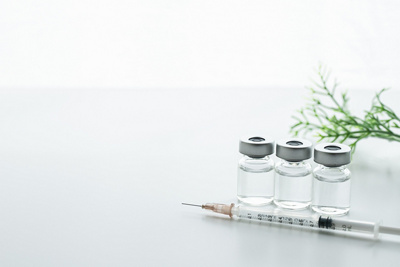A common feature of cerebral palsy – drooling – can be controlled by Botox injections.
Professor Chris Joseph, an ear, nose and throat (ENT) surgeon at Mediclinic Morningside, performs pro bono procedures on children with cerebral palsy at Forest Town, a special education school in Johannesburg. He’s able to do this with the support of Mediclinic Morningside and pharmaceutical company Allergan.
Understanding cerebral palsy and saliva control
Cerebral palsy is a condition that affects how the muscles in the body work. It generally develops before a child is born but can happen during birth or in early infancy. This condition occurs because the brain has trouble telling the muscles how to move in a smooth or well-coordinated way. It’s often caused by problems in the brain’s development or damage to the developing brain. In many cases, we don’t know what causes it (idiopathic), but sometimes it may occur due to issues during birth like injury or lack of oxygen. Cerebral palsy mainly affects the ability to move, control your muscles and maintain good posture. But it can also impact other functions like breathing, bladder and bowel control, and speaking. “Many children with cerebral palsy also have problems with eating, swallowing and saliva because of its neuromuscular effects,” Professor Joseph explains. “They drool not because they have excess saliva, but because they don't have the neuromuscular control to just swallow saliva as it's being produced.”
This interferes with a child’s day-to-day functioning, he adds. “It affects their eating, working, studying, and reading. If you have no control of your drooling, it messes up your writing, it falls onto your reading and while you're eating, it falls onto your clothes, which get progressively wetter.” Luckily, even severe cases are often well controlled with Botox treatment.
The benefits of Botox
Botox is a neuromuscular blocking agent, Professor Joseph explains. “It works on the nerve endings, which stimulate either muscle movement or salivation in your salivary glands. You have three major salivary glands: parotid (just in front of the ears); submandibular (below your jaw); and sublingual (under the floor of the mouth and below either side of your tongue). They all work through the same mechanism that your muscles work. When you inject Botox into the muscles it paralyses them, because it blocks the nerve ending. The effect on salivary glands is the same – it blocks the stimulus that causes the gland to secrete saliva.”
With cerebral palsy patients, Botox is generally injected into the submandibular or parotid glands, which are responsible for secretions, says Professor Joseph. “Between eating you then have a drier mouth and when you eat, you still have enough saliva because you’re not blocking all the glands.” Overall, this makes it easier for the patient to manage.
However, the effects of Botox eventually wear off, so it’s not a permanent solution, he says. “It takes a few days before it acts, it reaches maximum effectiveness in about six to eight weeks and then it eventually tends to wear off. It can usually last anything from 4-10 months, although in some cases it lasts longer.” However, its benefits are undeniable, Professor Joseph adds. “You can't dry up the children’s mouths too much and there are very few side-effects or potential complications.”
The drawback about having Botox administered repeatedly is that children need to go under general anaesthetic or be sedated because they’re frightened of the needle – despite its small size and the relatively painless nature of the procedure. In children, general anaesthetic is usually preferable, says Professor Joseph, as it’s believed to be more controllable, and patients recover quickly. As they grow into their later teens the need for regular injections generally diminishes.
The Forest Town connection
With the support of Mediclinic and Botox manufacturer Allergan, Professor Joseph began offering free Botox treatments to Forest Town children with cerebral palsy more than 15 years ago. Forest Town initially approached him after they heard him give a talk about the success he’d had with the procedures in his private practice.
“I approached Mediclinic, and they said they'd be happy to offer this to these children for free – they didn’t hesitate for a moment,” Professor Joseph recalls. Allergan donated the Botox and he and his colleagues were happy to work without remuneration. “The Botox is essentially free, the clinic pays for the needles, anaesthetic, theatre time, and disposables, and the doctors donate their time.” While this had to stop during COVID-19, the Forest Town programme is now resuming.
The treatment has had a very positive impact on the children’s quality of life, reports Professor Joseph. “They don't soil their clothes [with drool], they’re able to lean over their books, read and write and do their schoolwork without drooling over it, and there's less drooling at mealtimes.”

